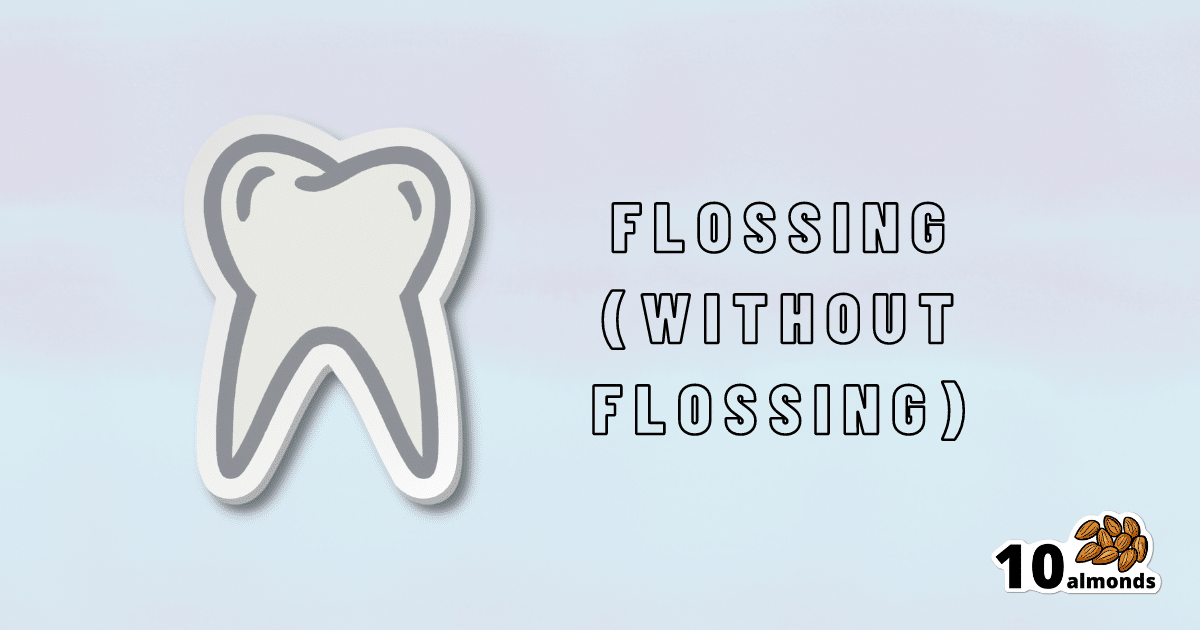Flossing Without Flossing?
Flossing Without Flossing? Find out how water-flossing can improve your oral health. Discover the best water-flossing devices on Amazon and try it for yourself.

Flossing Without Flossing?
You almost certainly brush your teeth. You might use mouthwash. A lot of people floss for three weeks at a time, often in January.
There are a lot of options for oral hygiene; variations of the above, and many alternatives too. This is a big topic, so rather than try to squeeze it all in one, this will be a several-part series.
The first part was: Toothpastes & Mouthwashes: Which Help And Which Harm?
How important is flossing?
Interdental cleaning is indeed pretty important, even though it may not have the heart health benefits that have been widely advertised:
However! The health of our gums is very important in and of itself, especially as we get older:
Flossing Is Associated with Improved Oral Health in Older Adults
But! It helps to avoid periodontal (e.g. gum) disease, not dental caries:
Flossing for the management of periodontal diseases and dental caries in adults
And! Most certainly it can help avoid a stack of other diseases:
Interdental Cleaning Is Associated with Decreased Oral Disease Prevalence
…so in short, if you’d like to have happy healthy teeth and gums, flossing is an important adjunct, and/but not a one-stop panacea.
Is it better to floss before or after brushing?
As you prefer. A team of scientists led by Dr. Claudia Silva studied this, and found that there was “no statistical difference between brush-floss and floss-brush”:
Flossing is tedious. How do we floss without flossing?
This is (mostly) about water-flossing! Which does for old-style floss what sonic toothbrushes to for old-style manual toothbrushes.
If you’re unfamiliar, it means using a device that basically power-washes your teeth, but with a very narrow high-pressure jet of water.
Do they work? Yes:
As for how it stacks up against traditional flossing, Liang et al. found:
❝In our previous single-outcome analysis, we concluded that interdental brushes and water jet devices rank highest for reducing gingival inflammation while toothpick and flossing rank last.
In this multioutcome Bayesian network meta-analysis with equal weight on gingival inflammation and bleeding-on-probing, the surface under the cumulative ranking curve was 0.87 for water jet devices and 0.85 for interdental brushes.
Water jet devices and interdental brushes remained the two best devices across different sets of weightings for the gingival inflammation and bleeding-on-probing. ❞
~ Journal of Evidence-Based Dental Practice
You may be wondering how safe it is if you have had dental work done, and, it appears to be quite safe, for example:
BDJ | Water-jet flossing: effect on composites
Want to try water-flossing?
Here are some examples on Amazon:
- Waterpik Complete Care 9.0 ← example of a top-end water-flossing device
- Philips Sonicare Power Flosser 3000 ← top-tier not-Waterpik-brand device
- INSMART Cordless Water Dental Flosser ← very low price and still average 4.5 star reviews, so in our opinion, a fine first choice
Bonus: if you haven’t tried interdental brushes, here’s an example for that 😎
Enjoy!
Share This Post
Learn To Grow
Sign up for weekly gardening tips, product reviews and discounts.




